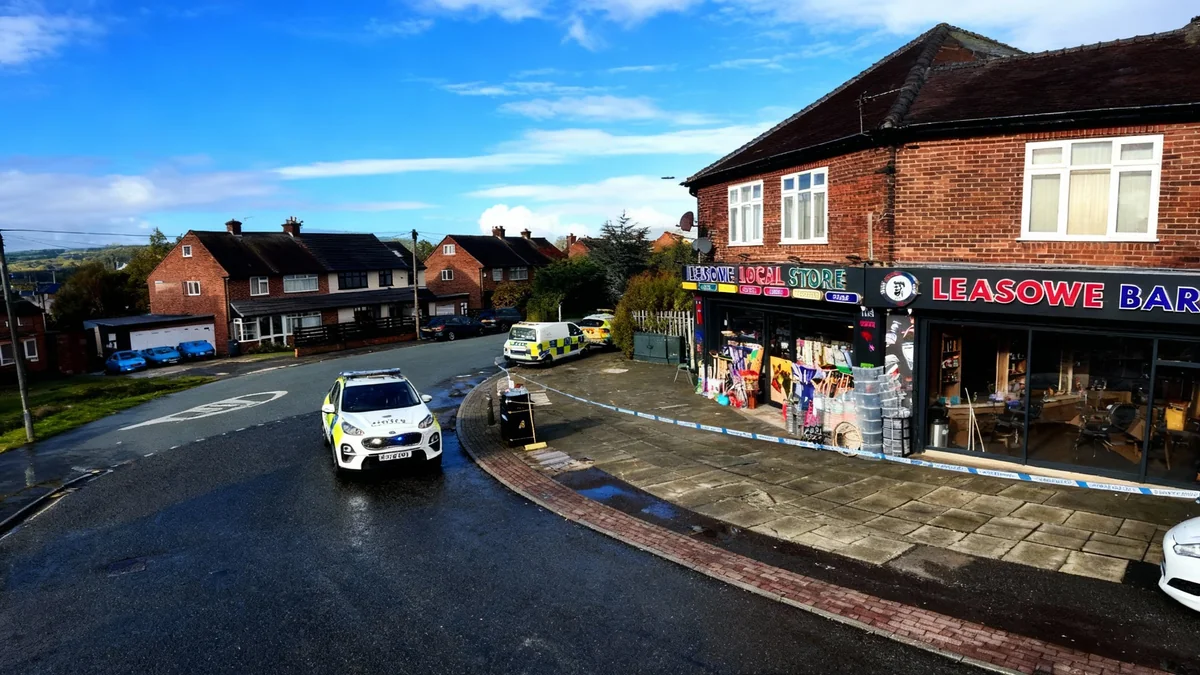A Liverpool man has been sentenced to prison for his role in an organised crime group that operated a sophisticated ecstasy factory in Birkenhead. Farris Thomas, 42, was identified as part of a police investigation into an industrial unit used to produce large quantities of the Class A drug.
Liverpool Crown Court heard that Thomas was connected to a large-scale operation on Cleveland Street, which involved industrial machinery for manufacturing MDMA tablets. His sentencing follows that of two other men involved in the criminal enterprise.
Key Takeaways
- Farris Thomas, 42, of Old Swan, was jailed for two years and eight months for participating in an organised crime group.
- The case relates to an ecstasy (MDMA) production factory discovered in an industrial unit on Cleveland Street, Birkenhead.
- Two other men, Ihtiandr Maciulevicius and Barry Burke, were previously sentenced to six years and over three years, respectively, for their roles.
- Police found large quantities of MDMA powder and industrial tablet-pressing machinery at the site.
Details of the Sentencing
Farris Thomas, of Childers Street in Old Swan, appeared at Liverpool Crown Court on Wednesday, 1 October. He received a prison sentence of two years and eight months after previously pleading guilty to participating in the activities of an organised crime group.
The court was informed that Thomas was linked to the operation through surveillance. He was identified visiting the industrial unit and, on at least one occasion, was observed loading items from the premises into his vehicle before driving away.
His guilty plea acknowledged his involvement in the broader criminal network responsible for the drug production facility.
Understanding the Charge
The charge of 'participating in the activities of an organised crime group' falls under the Serious Crime Act 2015. This legislation is designed to prosecute individuals who are not necessarily the leaders of a criminal enterprise but knowingly contribute to its activities, making it easier to dismantle entire criminal networks.
The Birkenhead Drugs Factory
The investigation began in January when officers received intelligence about a suspected drugs laboratory operating out of an industrial unit on Cleveland Street in Birkenhead. Upon investigation, authorities discovered a sophisticated setup designed for mass production of illegal drugs.
The premises contained significant quantities of unknown powders and large pieces of industrial equipment. Forensic analysis later confirmed the powder was MDMA, the primary chemical component of ecstasy.
The machinery found at the scene was identified as equipment used specifically for pressing the powder into ecstasy tablets, indicating a large-scale commercial operation capable of producing substantial amounts of Class A drugs for distribution.
MDMA (Ecstasy) is classified as a Class A drug in the UK. The maximum penalty for production and supply is life imprisonment, an unlimited fine, or both.
Other Members of the Group Sentenced
Farris Thomas is the third individual to be jailed in connection with the Birkenhead factory. Last month, two other men were sentenced at Liverpool Crown Court for their involvement.
Ihtiandr Maciulevicius, 22, of no fixed abode, admitted to the offence of being concerned in the production of a Class A drug (MDMA). He received the longest sentence of the group, being jailed for six years.
Barry Burke, 31, of Sandpiper Close in Farnworth, Bolton, was sentenced to three years and one month in prison. He pleaded guilty to an offence under Section 45 of the Serious Crime Act 2015, the same legislation used to prosecute Thomas for participating in the organised crime group's activities.
Police Statement on the Operation
Following the sentencings, Merseyside Police commented on the significance of shutting down the factory. Detective Inspector Andrew Schofield described the setup as a "sophisticated operation" that has now been successfully dismantled.
“This was a sophisticated operation where large volumes of white powder were found on the premises. Thankfully, we have closed this illegal operation down and removed a large quantity of Class A from circulation.”
Detective Inspector Schofield also highlighted the significant risks posed by such illegal laboratories, not only to drug users but also to the surrounding community.
“These hazardous drugs being made on Cleveland Street had the potential to not only spread untold misery across our communities through drug use but also cause serious health risks to those living nearby and drug users taking them,” he stated.
Wider Impact of Drug Supply
The police emphasised the violent and exploitative nature of the drug trade. According to Detective Inspector Schofield, criminal groups rely on fear to maintain their operations.
“Offenders involved in drug supply rely on threats, intimidation and violence to keep their illicit trade alive. They ruthlessly exploit vulnerable drug users and often also take advantage of vulnerable young people to do their bidding and store or transport drugs,” he added.
He concluded with an appeal to the public, stressing that community information is vital for successful police action against drug crime. “Key to our successes in removing drugs and other harmful items from the streets is information from those communities who are affected, so keep coming forward and we will take positive action.”




